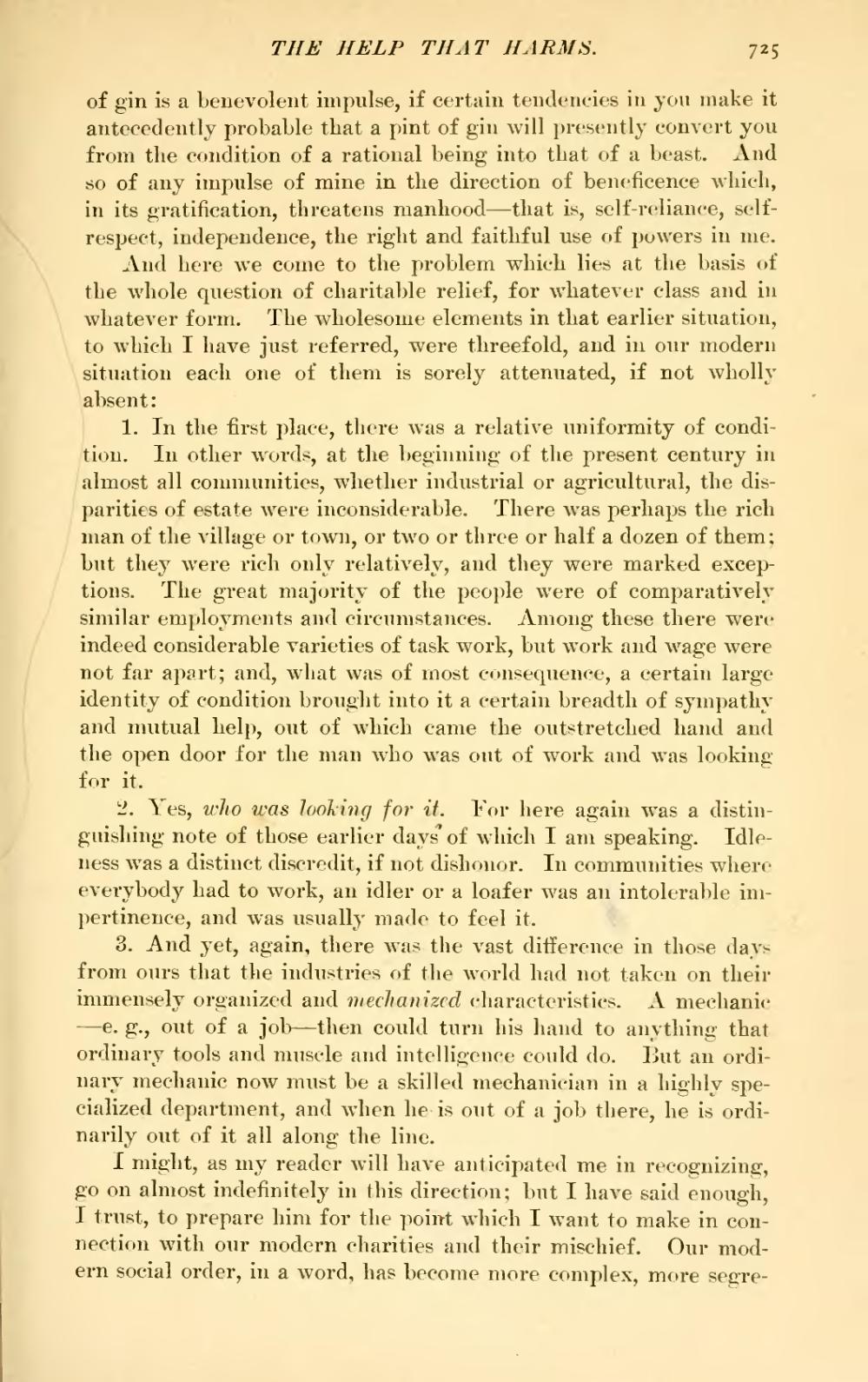of gin is a benevolent impulse, if certain tendencies in you make it antecedently probable that a pint of gin will presently convert you from the condition of a rational being into that of a beast. And so of any impulse of mine in the direction of beneficence which, in its gratification, threatens manhood—that is, self-reliance, self-respect, independence, the right and faithful use of powers in me.
And here we come to the problem which lies at the basis of the whole question of charitable relief, for whatever class and in whatever form. The wholesome elements in that earlier situation, to which I have just referred, were threefold, and in our modern situation each one of them is sorely attenuated, if not wholly absent:
1. In the first place, there was a relative uniformity of condition. In other words, at the beginning of the present century in almost all communities, whether industrial or agricultural, the disparities of estate were inconsiderable. There was perhaps the rich man of the village or town, or two or three or half a dozen of them; but they were rich only relatively, and they were marked exceptions. The great majority of the people were of comparatively similar employments and circumstances. Among these there were indeed considerable varieties of task work, but work and wage were not far apart; and, what was of most consequence, a certain large identity of condition brought into it a certain breadth of sympathy and mutual help, out of which came the outstretched hand and the open door for the man who was out of work and was looking for it.
2. Yes, who was looking for it. For here again was a distinguishing note of those earlier days of which I am speaking. Idleness was a distinct discredit, if not dishonor. In communities where everybody had to work, an idler or a loafer was an intolerable impertinence, and was usually made to feel it.
3. And yet, again, there was the vast difference in those days from ours that the industries of the world had not taken on their immensely organized and mechanized characteristics. A mechanic—e.g., out of a job—then could turn his hand to anything that ordinary tools and muscle and intelligence could do. But an ordinary mechanic now must be a skilled mechanician in a highly specialized department, and when he is out of a job there, he is ordinarily out of it all along the line.
I might, as my reader will have anticipated me in recognizing, go on almost indefinitely in this direction; but I have said enough, I trust, to prepare him for the point which I want to make in connection with our modern charities and their mischief. Our modern social order, in a word, has become more complex, more segre-

